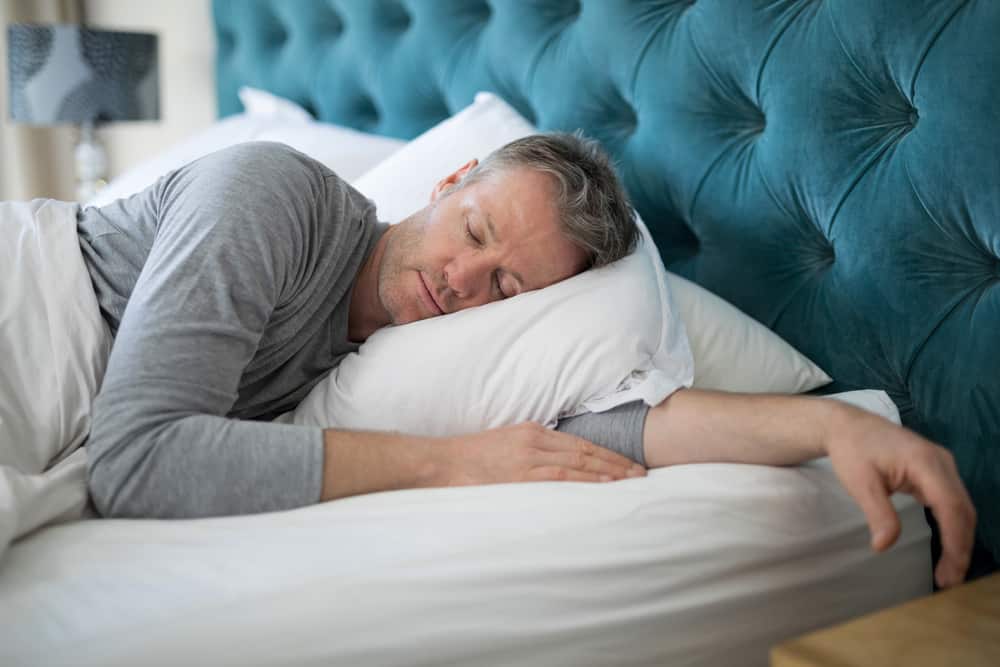Sleep is vital for a large variety of health reasons, including the ability to regulate our mood, to function efficiently and maintain good physical health. However, as an adult with multiple responsibilities, it can be tough at times to achieve a solid seven to eight (recommended) hours of sleep per night. Mental health illnesses such as anxiety, depression and insomnia can further reduce our ability to achieve a good night’s sleep.
Despite our busy lifestyles (and any applicable health conditions), it is critical we do all we can to get enough good sleep in order to experience optimal physical, mental and emotional health. Let’s take a detailed look at some of the key benefits of good sleep for our health.
Key Health Benefits Of Good Sleep
Sleep Improves Our Concentration, Attention Span and Decision Making-Ability
With a solid night’s sleep, we experience an increased ability to concentrate and pay attention to what is going on around us. When we feel rested as opposed to exhausted, our ability to solve any problems that arise (such as a conflict in the workplace) is enhanced.
When we lack sufficient rest, our bodies experience reduced reaction time and our ability to make decisions quickly and effectively is lessened. For example, sleep deprivation is one of the leading causes of car accidents (alongside being under the influence of alcohol). Starting our day well rested enables us to make fewer mistakes throughout our day.
Sleep Improves Our Memory
When we are experiencing deep sleep, our brains undergo a very important activity referred to as ‘memory consolidation’, whereby the brain processes what happened throughout our day (i.e. ‘memories’). During this process, our brain creates connections between events that occurred, relevant sensory input and any feelings we experienced.
With a good night’s sleep, we are better able to recall information as well as process new information more easily. A decent sleep can be largely beneficial in situations where we are studying new information or preparing for a test or examination.
Sleep Improves Productivity And Performance
It’s no secret that when we experience a quality sleep, we are much more likely to feel rejuvenated, energised and alert over the day ahead.
When we are fatigued, it can be very difficult to adequately achieve all that is required of us in our day-to-day lives, such as at school or university, in our workplace and at home. On the contrary, a solid seven to eight hours of sleep gives us the best chance of both (i) being able to achieve what we need to get done, and (ii) performing at our best.
Sleep Enables Us To Maintain A Healthy Weight
When we are sleep deprived, we often feel more hungry than usual or experience an increased appetite – this is our body’s way of trying to replenish its energy sources. Sleep deprivation can disrupt the correct balance of the ‘appetite hormones’, leptin and ghrelin. Leptin is responsible for appetite suppression, whereas ghrelin is responsible for appetite stimulation. Lack of sleep can also slow metabolism.
Additionally, sometimes when we are exhausted, we tend to reach for whatever food (or beverage) is easiest and fastest to consume on the spot, rather than preparing and nourishing ourselves with healthy wholefoods. Similarly, when we are tired or rundown, we may experience reduced motivation to control our portion size and instead overeat.
A lack of sleep can also negatively affect our energy levels as well as motivation to exercise. Sometimes when we are tired (but not unwell – in this case rest is vital), watching TV on the couch can be much more tempting than heading to the gym or outdoors to exercise, for example.
Sleep May Reduce Stress And The Likelihood Of Illness
It is not uncommon for us to experience larger amounts of stress and/or a decreased ability to manage our stress when we are sleep deprived, and increased stress may be accompanied by a raise in blood pressure. By getting adequate sleep each night, we are able to reduce our stress levels and more easily maintain a healthy blood pressure.
Long-term sleep deprivation may be associated with increased levels of inflammatory proteins in the bloodstream and increased cholesterol levels, which alongside high blood pressure can raise the chance of suffering from a stroke or heart disease. Ongoing poor sleep can also increase the chance of developing type 2 diabetes, as inadequate levels of sleep can adversely affect blood sugar levels as well as reduce the body’s sensitivity to insulin.
Getting seven to eight hours per night of solid sleep is very important for maintaining healthy immune function. Our body is much more able to fight illness and disease when optimal sleep levels are maintained, as opposed to when we are tired and/or rundown. Similarly, we are less likely to suffer from headaches and/or migraines when well rested, as the body is able to maintain a healthy balance of two key neurotransmitters important for regulating sleep, serotonin and dopamine, thereby reducing the chance of headaches.
Sleep Increases Emotional Stability
On some days, a poor night’s sleep can wreak havoc with our emotions. Sleep deprivation (or insomnia) is often linked with two of the most common mental health illnesses, anxiety (characterised by chronic worry) and depression (which refers to ongoing feelings of intense low mood or sadness).
When we are lacking rest, it can worsen feelings of anxiety and depression, as a lack of sleep can negatively affect a person’s mood and our ability to handle stress. However, achieving a good night’s sleep can increase our ability to manage our emotions (otherwise referred to as ‘emotional stability’) and our patience, as well as reduce feelings of irritability.
Sleep is crucial for healthy functioning – not just on a physical level, but for our mental and emotional health as well. If you are suffering from insomnia or sleep deprivation associated with a mental health illness such as anxiety or depression, don’t be afraid to seek professional help and support. Contact Blissiree Pty Ltd today for help with insomnia, to get you back to feeling the healthiest, happiest and most energetic version of yourself.




